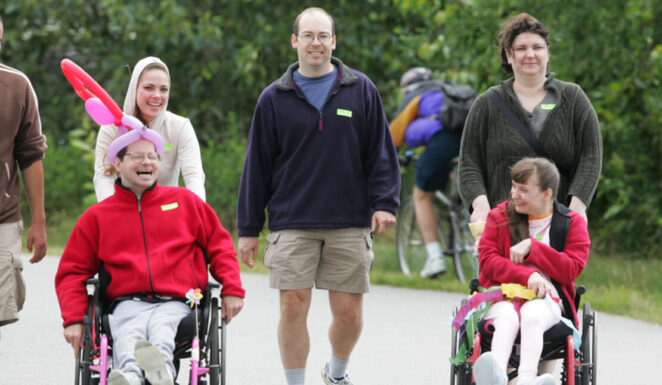Community centres play a pivotal role in fostering local development and enhancing the quality of life within neighborhoods. They serve as hubs of social, cultural, educational, and recreational activities that bring people together, promoting community spirit and mutual support. This article explores the multifaceted contributions of community centres to local development, highlighting their importance beyond just being meeting places.
Anchors for Community Engagement

Community centres often stand as the heart of neighborhood life. They provide a physical space where individuals from diverse backgrounds can come together to share experiences, exchange ideas, and participate in activities that enhance their social networks.
Boosting Social Interaction
These centers host a variety of events such as art classes, fitness programs, and social clubs, which are crucial for engaging community members.
For instance, the Calgary fitness center offers tailored programs that cater to all ages, promoting health and wellness alongside community cohesion.
Activities like these not only improve individual well-being but also foster a sense of belonging and community pride.
Enhancing Cultural Exchange
Community centres also serve as venues for cultural exchange, hosting multicultural festivals, art exhibitions, and traditional dances that celebrate the diverse backgrounds of community members. These events encourage residents to embrace and learn about different cultures, thereby promoting inclusivity and mutual respect.
Catalysts for Educational Opportunities

Education is a cornerstone of community development, and community centres often facilitate a broad range of educational programs aimed at enhancing lifelong learning for all age groups.
Youth Programs and Workshops
From after-school tutoring to career workshops, these centres provide essential resources for young people to thrive academically and socially. They offer safe spaces where youth can engage with peers and mentors, fostering both personal and intellectual growth.
Adult Education and Skill Development
For adults, community centres provide classes and workshops that range from basic literacy to vocational training. These programs equip individuals with the necessary skills to improve their employment prospects, thus contributing to local economic development.
Drivers of Economic Growth
Community centres indirectly contribute to local economic growth by hosting business workshops, providing networking opportunities, and even offering spaces for local entrepreneurs to showcase their products and services.
Supporting Small Businesses
Many community centres offer programs that help small business owners and entrepreneurs develop business plans, understand marketing strategies, and connect with local resources. These initiatives boost local economies by supporting grassroots business efforts.
Job Creation
By hosting various programs and events, community centres create numerous employment opportunities for local residents. These range from administrative roles to event coordination positions, adding to the local job market and supporting community livelihoods.
Promoting Health and Wellness

A significant aspect of community centres is their role in promoting public health and wellness. By providing access to sports facilities, fitness classes, and health education, these centers play a crucial part in improving the overall health of the community.
Fitness and Recreation
Community centres offer a range of physical activities that encourage a healthy lifestyle. Whether it’s a swimming pool, a soccer field, or fitness classes, these facilities provide residents with the opportunity to maintain physical fitness without the high costs often associated with private clubs.
Mental Health Support
Apart from physical health, many community centres provide mental health workshops and support groups that address various issues like depression, anxiety, and stress management. These services are vital for building a healthy community where members can seek help and support in a safe and welcoming environment.
Enhancing Safety and Security
Community centres contribute to local safety and security by fostering strong community ties and offering programs that educate residents on safety practices.
Crime Prevention Programs
By hosting crime prevention workshops and community watch programs, community centres help reduce local crime rates. These programs also strengthen the relationship between community members and local law enforcement, leading to safer neighborhoods.
Emergency Preparedness
Many community centres serve as critical venues for emergency preparedness training and coordination. They provide education on natural disaster preparedness and serve as shelters during emergencies, ensuring that community members are prepared and protected.
Strengthening Environmental Awareness

Community centres play a crucial role in promoting environmental stewardship within local neighborhoods. By hosting educational workshops and community clean-up events, they foster a collective responsibility toward environmental conservation.
Green Initiatives
Many community centres implement green initiatives such as recycling programs, urban gardening, and energy conservation projects. These programs not only teach residents about sustainable practices but also contribute directly to the environmental health of the community.
Sustainable Living Workshops
Workshops on topics such as composting, sustainable gardening, and water conservation help educate residents on how to minimize their environmental impact. These programs encourage sustainable living choices and promote a greater awareness of environmental issues at a local level.
Building Resilient Communities
Community centres are pivotal in building resilience within communities, especially in facing social, economic, or environmental challenges. They provide resources and support that help communities adapt and thrive despite adversities.
Support Networks
Community centres act as support networks, offering services such as counseling, legal aid, and financial advice. These resources are essential for individuals facing economic hardships or personal crises, ensuring they have access to necessary support without undue strain.
Community Solidarity
During times of crisis, such as natural disasters or economic downturns, community centres often become hubs of solidarity and support. They coordinate relief efforts, distribute resources, and provide emotional support, reinforcing the community’s ability to withstand and recover from challenges.
Promoting Accessibility and Inclusivity

One of the fundamental roles of community centres is to ensure that all community members, regardless of age, gender, ethnicity, or socioeconomic status, have access to their services and programs. This commitment to inclusivity is vital for fostering a healthy, vibrant community.
Barrier-Free Access
Community centres are designed to be accessible, often providing facilities that are wheelchair-friendly and programs that cater to individuals with disabilities. This inclusivity ensures that everyone can participate in community activities and benefit from the center’s resources.
Programs for All Ages
From senior yoga classes to teen leadership camps, community centres offer programs tailored to different age groups and interests. This wide range of activities ensures that everyone in the community can find something that resonates with their needs and hobbies, fostering a multi-generational community space.



